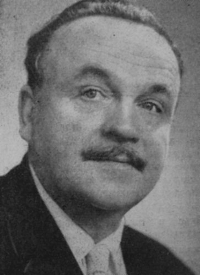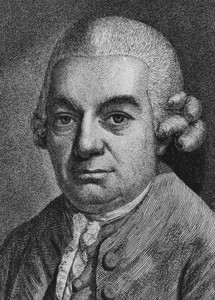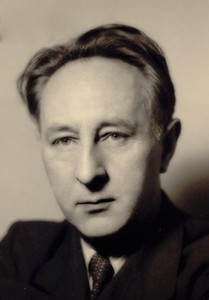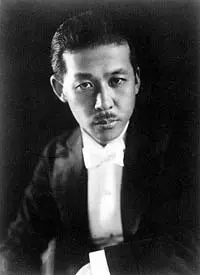
Ivan Ivanovich Dzerzhinsky |
Contents
Ivan Dzerzhinsky
Born in 1909 in Tambov. Arriving in Moscow, he entered the First State Musical College, where he studied piano and composition with B. L. Yavorsky. Since 1929, Dzerzhinsky has been studying at the technical school. Gnesins in the class of M. F. Gnesin. In 1930 he moved to Leningrad, where until 1932 he studied at the Central Music College, and from 1932 to 1934 at the Leningrad Conservatory (composition class of P. B. Ryazanov). At the conservatory, Dzerzhinsky wrote his first major works – “The Poem of the Dnieper”, “Spring Suite” for piano, “Northern Songs” and the first piano concerto.
In 1935-1937, Dzerzhinsky created the most significant works – the operas “Quiet Don” and “Virgin Soil Upturned” – based on the novels of the same name by M. Sholokhov. Staged for the first time by the Leningrad Maly Opera House, they successfully toured the stages of almost all opera houses in the country.
Dzerzhinsky also wrote operas: The Thunderstorm, based on the drama of the same name by A. N. Ostrovsky (1940), Volochaev Days (1941), Blood of the People (1941), Nadezhda Svetlova (1942), Prince Lake (based on P. Vershigora’s story “People with a Clear Conscience”), the comic opera “Snowstorm” (based on Pushkin – 1946).
In addition, the composer owns three piano concertos, the piano cycles “Spring Suite” and “Russian Artists”, inspired by the impressions of the paintings of Serov, Surikov, Levitan, Kramskoy, Shishkin, as well as the song cycles “First Love” (1943), “Straight Bird” (1945), “Earth” (1949), “Woman Friend” (1950). For the lyrical cycle of songs to the verses of A. Churkin “New Village” Dzerzhinsky was awarded the Stalin Prize.
In 1954, the opera “Far from Moscow” (based on the novel by V. N. Azhaev) was staged, and in 1962, “The Fate of a Man” (based on the story of M. A. Sholokhov) saw the light on the largest opera stages in the country.
Compositions:
operas — The Quiet Don (1935, Leningrad, Maly Opera Theatre; 2nd part, titled Grigory Melekhov, 1967, Leningrad Opera and Ballet Theatre), Upturned Virgin Soil (after M. A. Sholokhov, 1937, Bolshoi Theatre), Volochaevsky days (1939), Blood of the People (1942, Leningrad Maly Opera Theatre), Nadezhda Svetlova (1943, ibid), Prince Lake (1947, Leningrad Opera and Ballet Theatre), Thunderstorm (after A. N. Ostrovsky, 1940 -55), Far from Moscow (according to V. N. Azhaev, 1954, Leningrad. Maly Opera Theatre), The Fate of Man (according to M. A. Sholokhov, 1961, Bolshoi Theater); musical comedies – Green shop 1932, Leningrad. TPAM), On a winter night (based on Pushkin’s story “The Snowstorm”, 1947, Leningrad); for soloists, choir and orchestra – the oratorio Leningrad (1953), three odes to St. Petersburg – Petrograd – Leningrad (1953); for orchestra — Tale of partisans (1934), Ermak (1949); concerts with orchestra – 3 for fp. (1932, 1934, 1945); for piano – Spring suite (1931), Poem about the Dnieper (ed. 1932), suite Russian artists (1944), 9 pieces for children (1933-37), Album of a young musician (1950); romances, including the cycles Northern Songs (lyrics by A. D. Churkin, 1934), First Love (lyrics by A. I. Fatyanov, 1943), Stray Bird (lyrics by V. Lifshitz, 1946), New Village ( lyrics by A. D. Churkin, 1948; State Pr. of the USSR, 1950), Earth (lyrics by A. I. Fatyanova, 1949), Northern button accordion (lyrics by A. A. Prokofiev, 1955), etc.; songs (St. 20); music for drama performances. theaters (St. 30 performances) and films.





